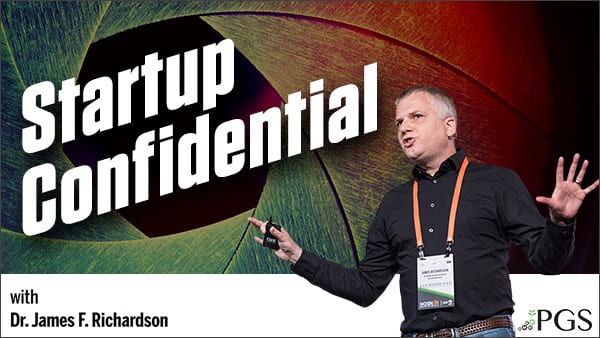PODCASTS / E56

Ep. 56 – The Emerging Caste Hierarchy Among Founders
OCTOBER 15, 2021
A pattern has become more clear during the pandemic. And it’s disturbing to me. Capital is flowing ever more to a caste, an occupational class, I’m calling the professional operators. These are teams with prior industry experience or ‘CEOs’ with ‘fancy’ BigCo resumes installed by bankers to replace the founder.
What’s most disturbing about the latter is that it is almost always a female founder shunted to the side and turned into a ‘head of marketing.’ Often, these founders appear to be happy not running a business any more. They didn’t get into to become CPG operators.
In this professional operator caste, the interests are biased towards the timelines of institutional investment firms. The latter want ‘adults’ at the table. Not industry ‘kids’ smiling way too much at the trade show booth. Wall Street LPs are behind the curtain and they aren’t that concerned with building brands or brands built on fans, to be more precise.
Pump-and-dump business building keeps happening because buyers still go for these businesses. They just rarely last or grow when built improperly. They aren’t connected to long-term cultural trends or doing anything compelling enough to sustain HH usage over years and years like Kind bar.
But, then there is the much larger mosh pit of boot-strapped companies with no real industry experience per se. Most will never get institutional investment offers. But some who do walk away from them, because they can see they will lose control. Not all get offers from the mature firms who treat founders well.
You know what though? Increasingly, there are consumer brands started by scrappy, very smart folks without industry experience who simply work hard to learn what they don’t know. They professionalize themselves by admitting what they don’t know and getting specialized help as needed. They take total responsibility for analyzing and improving their performance.
And the folks that do this well are becoming Phase 4, 8-figure companies without any institutional capital. More and more often. Yes, they have seed money and yes they do tend to obtain angel investment from somewhere at some point.
Some examples are: Dude Wipes, Ithaca hummus, June Shine kombucha, Dr. Squatch Soap…heard of them?. When I can tell the full story behind Dr. Squatch some day, I will and it will blow you away. As well as every 65th floor PE/VC punk out there who listens to this podcast.
I am finding more and more of these companies who grow very far without venture capital or institutional investment, and it should give you hope that you can control your company and grow it with sporadic private raises. But you have to be incredibly committed to professionalizing yourself rapidly as you grow.
This is like a second adolescence, one for adults. Because it’s painful to make tons of mistakes, learn and move on without losing belief in yourself. I get it.
One of the benefits is that you are NOT having to deal with the supposed expertise of institutional investors, or the ventriloquist CEOs they like to install in lieu of you.
If you honestly are sick of running your business, though, finding a reputable institutional firm to basically take it over is perhaps the best mental health decision you’ll ever make. But you will most likely net far less money than had you retained control, simply because your equity will get diluted and shrink in absolute size. It doesn’t mean you won’t make millions. Several people have.
But, if you really want to run these kinds of businesses, you can make far more in the end and use those earnings to have even more impact on the world, including through philanthropic activities many of you orient strongly to anyways, if you only had the money to generate impact.
I say this to encourage more of you new to the industry to commit heavily to the professionalization process, so that you have choices as you scale. So, that you are not raising money in desperation, and cave to aggressive terms.
Ultimately, by professionalizing your organization and behavior, you will attract the interest of the good investors, should you want their involvement, later on up the Ramp.
In Episode 17, I discussed what Professionalization means for most early-stage founders new to running any business, let alone a fast-growing one. This is not about being polite in mixed company. It’s something more difficult.
Yes, it’s not for everyone, but it’s part of the process of retaining control as a founder. Otherwise, you may choose to let others scale your business. Just don’t make that decision because you found the process of professional development too daunting. That’s a lousy excuse. There has never been a better, more democratic access to expertise and resources needed to professionalize yourself in the world of consumer brands.
I’d bet on a brand in 500 stores with 10,000 emails than a brand in 3,000 doors with 1,200 emails, half of which come from one-time DTC customers.